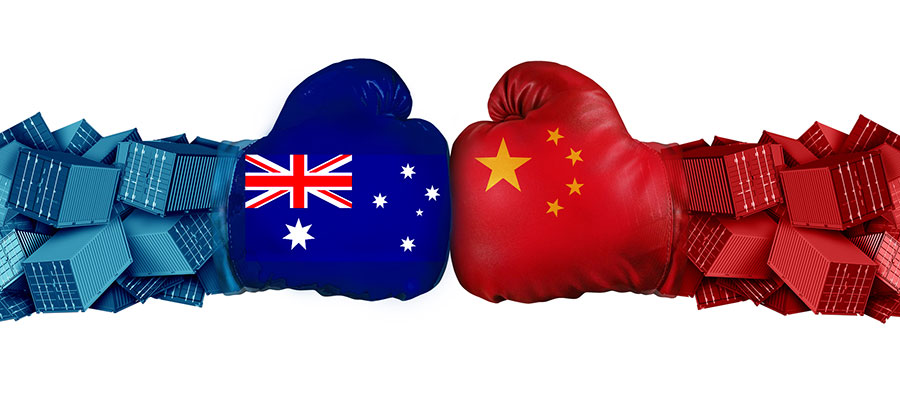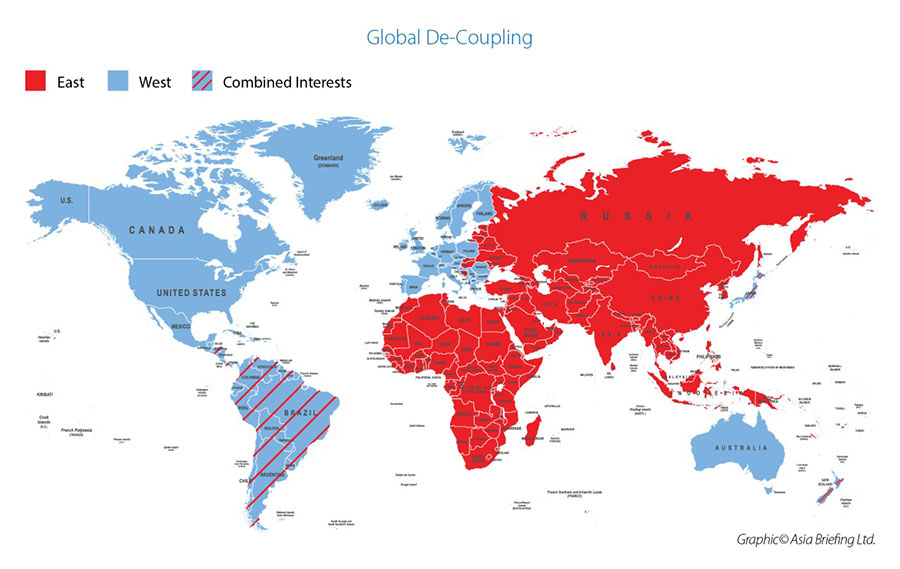Decoupling From China Part Three: After the United States and EU, Now Its Australia’s Turn

Beijing has today axed a high-level channel for economic talks with Canberra, criticizing Australian leaders for having a “Cold War mentality” after the country canceled contracts linked to its Belt and Road project last week.
In a strongly worded statement released today, China’s National Development and Reform Commission, said the China-Australia Strategic Economic Dialogue would be paused indefinitely, stating “Recently, some Australian Commonwealth Government officials launched a series of measures to disrupt the normal exchanges and cooperation between China and Australia out of Cold War mindset and ideological discrimination. Based on the current attitude of the Australian Commonwealth Government toward China-Australia cooperation, the National Development and Reform Commission of the People’s Republic of China decides to indefinitely suspend all activities under the framework of the China-Australia Strategic Economic Dialogue.”
Ties, and especially trade relations, between the two states have steadily frayed in recent months, seeing Beijing threaten economic retaliation after Canberra demanded an international probe into the origins of the coronavirus pandemic, which was first detected in the Chinese city of Wuhan in late 2019. Before that, in 2018, Australia moved to ban the Shenzhen-based telecom giant Huawei and passed a number of foreign interference laws targeting Beijing, both prompting terse responses.
The relationship has only deteriorated further in the meantime, with Australian officials scrapping two deals previously signed between Beijing and the state of Victoria for China’s Belt and Road Initiative in March. Foreign Minister Marise Payne said the contracts were “inconsistent with Australia’s foreign policy or adverse to our foreign relations,” invoking powers created by legislation passed last year that allows the FM to veto agreements with other nations.
In response, Beijing said the move was “bound to bring further damage to bilateral relations,” making good on that prediction with Thursday’s decision to scrap the economic dialogue.
While relations have been frosty for some time, halting the negotiation channel could spell further trouble for Canberra as it seeks to resolve trade disputes that affect AU$20 billion in Australian exports, including in key industries such as coal, timber, seafood, wine, and barley. As of March, this year, bilateral trade between the two countries had decreased by 40% compared to the period before the disputes.

Australia’s decision to introduce ‘foreign interference’ laws aimed largely at China appear to be a component part of a coordinated attempt to diminish trade with the country. The United States is seeing its ‘Strategic Competition Act’ – which is also targeting China – pass through Congress, while the European Union yesterday apparently suspended the proposed China-EU Investment Treaty (CAI).
Also now uncertain is the future of the proposed Regional Comprehensive Partnership Agreement (RCEP) which includes both China and Australia in a free trade agreement also involving the ten ASEAN nations, Japan, South Korea, and New Zealand.
The implications for Australian businesses remain uncertain, although supply chains involving Australia and China will have to be reassessed. That however means opportunities for creating new sourcing routes in countries such as Bangladesh, India, Indonesia, Vietnam, and other ASEAN nations. The hyperlinks all lead to articles discussing these.
Related Viewing
- The EU-China CAI Investment Breakdown: What EU Manufacturing Sectors Could Be Hit?
- The Australia-China Belt & Road Fall Out – What’s Been Cancelled?
About Us
Silk Road Briefing is written by Dezan Shira & Associates. The firm has 28 offices throughout Asia, and assists foreign investors into the region. For strategic advisory and business intelligence issues please contact the firm at silkroad@dezshira.com or visit www.dezshira.com





